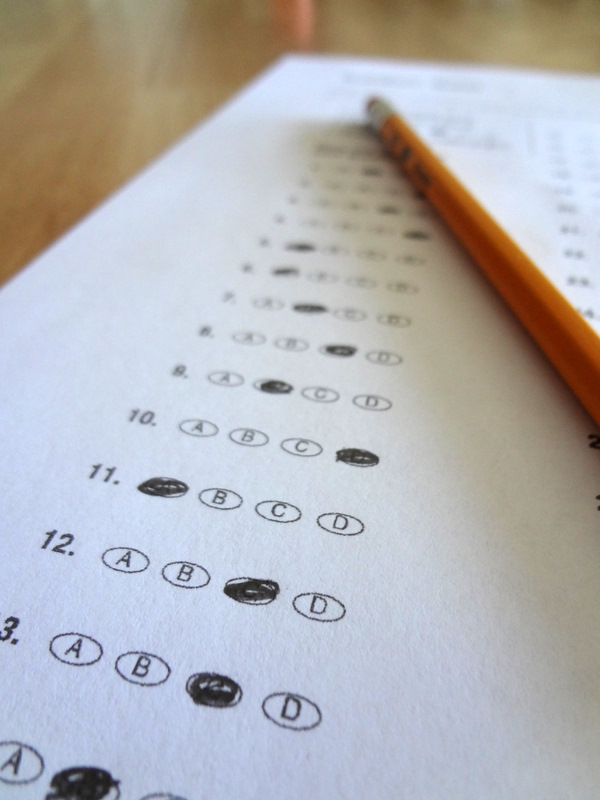While at the 2011 Bridges Conference, I learned a bit about the mathematics of weaving. One of our projects was to plan and weave a tiling of the plane. For some unknown reason, I chose a Halloween theme.
Application Appreciation
A Jumbo Margin of Error
 I was out in the neighborhood shopping for seafood and stopped by the local fishmonger. I inspected the jumbo shrimp, which were going for $17.99 a pound. I decided I’d take a pound, and placed my order.
I was out in the neighborhood shopping for seafood and stopped by the local fishmonger. I inspected the jumbo shrimp, which were going for $17.99 a pound. I decided I’d take a pound, and placed my order.
The fishmonger threw a handful of shrimp on the scale. The pile weighed in 0.85 pounds, so he added a few more. The additional shrimp took the total over a pound, so he took one off. Slowly, this series of shrimp was converging to the appropriate limit.
Still a little over, the fishmonger exchanged two large shrimp with two smaller ones. This brought the total weight down to 0.95 pounds.
I turned my attention to the rest of my grocery list. It wasn’t until after I had cashed out and left the store that it hit me: The fishmonger had charged me $17.99 for the shrimp! That is, he charged me for a full pound, even though I only received 0.95 pounds.
Now, a 5% margin of error might not seem too bad, but because of the high cost of shrimp, that 5% error amounts to 90 cents! With all the attention paid to that weighing, I feel like he could have been a bit more accurate. I would also hypothesize that the vast majority of weighing inaccuracies are of the “under” variety.
My inattentiveness here cost me a dollar, but at least I walked away with something to think about. And while the fishmonger may have won a dollar, he lost all my future business.
Challenge NYT
Math Quiz: NYT Learning Network
 Through Math for America, I am part of an on-going collaboration with the New York Times Learning Network. My latest contribution, a Test Yourself quiz-question, can be found here:
Through Math for America, I am part of an on-going collaboration with the New York Times Learning Network. My latest contribution, a Test Yourself quiz-question, can be found here:
https://learning.blogs.nytimes.com/2011/09/07/test-yourself-math-sept-7-2011/
This question comes from an article about the proliferation of expensive summer camps catering to wealthy clientele. How much does a day of high-end summer camp cost?
Uncategorized
Math Research Projects
This is a terrific collection of Math Research projects designed to engage middle school, high school, and undergraduate students in independent mathematical research:
http://www.york.cuny.edu/~wu/jm/
The projects cover topics like graph coloring, triangulation, nets, and voting matrices. Each project contains background information, examples, a fundamental problem, and extensions.
Although many of the questions (and answers) may be known, the projects mostly explore areas of mathematics that are not as well-traveled as Number Theory or Euclidean Geometry. Students who engage with this material may very well find themselves looking at something new, or in a new way.
Teaching
Are These Tests Any Good?
 When it comes to educational testing, the stakes are higher than ever. For a student, tests might determine which public schools you can attend, if and when you graduate, and which colleges are available to you. For schools and districts, aggregate test scores and the “progress” they show might determine what kind of state and federal aid is available.
When it comes to educational testing, the stakes are higher than ever. For a student, tests might determine which public schools you can attend, if and when you graduate, and which colleges are available to you. For schools and districts, aggregate test scores and the “progress” they show might determine what kind of state and federal aid is available.
As a means of evaluating teachers, student test scores are playing an increasing role. Indeed, state laws have been re-written to mandate the use of standardized test data as a substantial factor in rating teacher performance.
There is controversy regarding the value of standardized tests, even as measures of student achievement (in most cases, their purported purpose). A very public debate has emerged as politicians attempt to make education more “data-driven” and hold teachers and schools more “accountable”. But one fundamental question is rarely raised in this conversation: are these tests any good?
If the tests we use to evaluate students, schools, and now teachers, are ill-conceived, sloppy, and erroneous, how legitimate a measure of teaching and learning could they possibly be? The issue of test quality and relevance seems like an important one, but it gets very little attention.
In this series, I address the question “Are These Tests Any Good?” by looking at a collection of questions from the 2011 New York State Math Regents Exams. My cursory analysis reveals many significant issues with how these tests are created: mathematical errors; poorly-worded questions; the de-emphasis of knowledge; and misalignment with course curricula.
If we can’t create legitimate, relevant, appropriate tests, should we really be using them to evaluate teachers? Or students?
Are These Tests Any Good?
Part I: Mathematically Erroneous Questions
Part II: Ill-Conceived Questions
Part III: Underrepresented Topics
Part IV: The Worst Math Regents Question of All Time
Part V: 9th Grade Questions on 10th and 11th Grade Exams
Here are some other resources on this topic.
This blog by JD2718 offers a similar critique of Regents exams from 2009.
Here’s some fun I had with one of this year’s Regents questions involving the famous 13-14-15 triangle.
Related Posts
